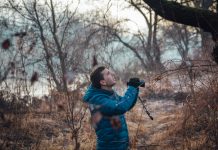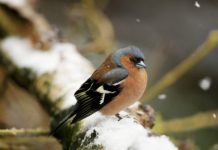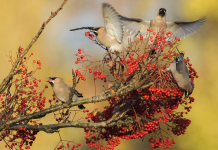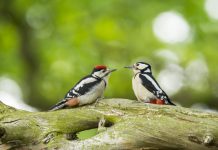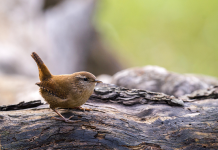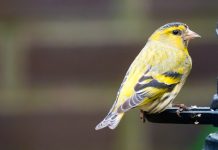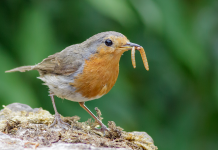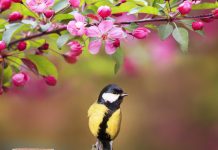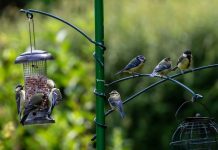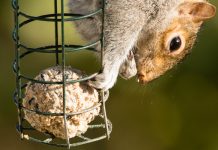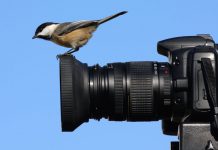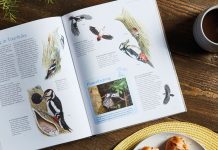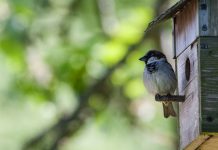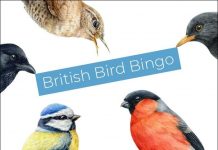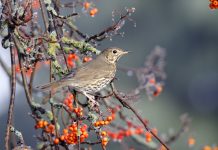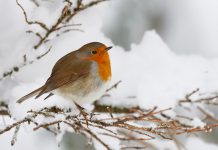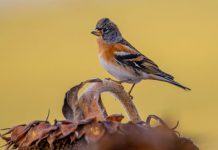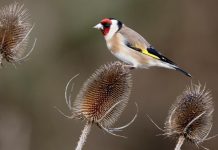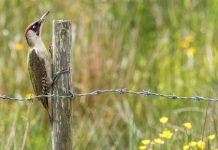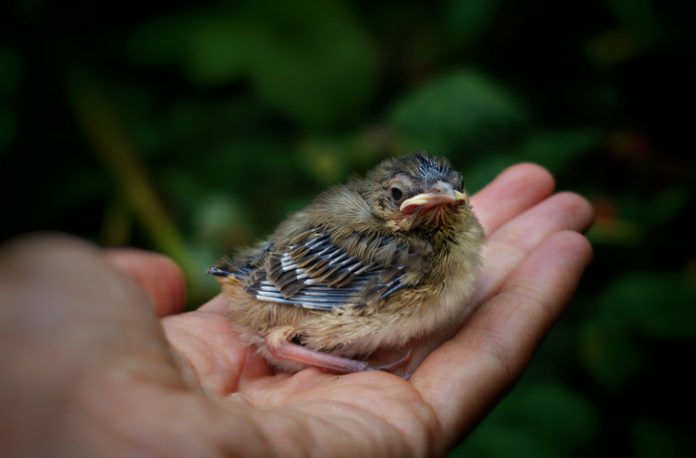Fledging season is upon us, and at this time of year, it’s not uncommon to find a lost-looking baby bird sitting on the ground by itself or hopping around without any sign of its parents. But it can be hard to know what to do in such a situation. So, what is the best thing to do if you find a baby bird?
What should I do?
It’s only natural to be concerned as baby birds can look very vulnerable, but nine times out of ten, you don’t need to worry or do anything about it. Whether you need to do anything or not depends on if the baby bird is feathered or not and if it is showing signs of injury.
If the baby bird has feathers
The chicks of our most common garden birds fledge once they are fully feathered but aren’t yet able to fly. This means they will often spend a day or two on the ground whilst they finish growing their flight feathers. The fledgling is doing exactly what it should be doing and has deliberately left the nest a little while before it is able to fly.
It may be tempting to pick the bird up, but this will do more harm than good. It is extremely unlikely that the fledgling has been abandoned by its parents. Remember, just because you can’t see the adult birds, that doesn’t mean that they aren’t around. They are probably out collecting food for their little ones, or hidden away in a nearby tree keeping an eye on how their baby is getting on. So you should usually leave the fledgling where it is, in the care of its parents. It is especially important to leave any young birds of prey alone, as there is a possibility you could be attacked by its parent.
However, there is an exception to this rule. Swifts, swallows and house martins only fledge once they are able to fly, so should never be found on the ground. If you do find a swift, swallow or house martin on the ground, contact your local animal shelter straight away and keep a constant eye on the fledgling from a distance until it has been safely collected.
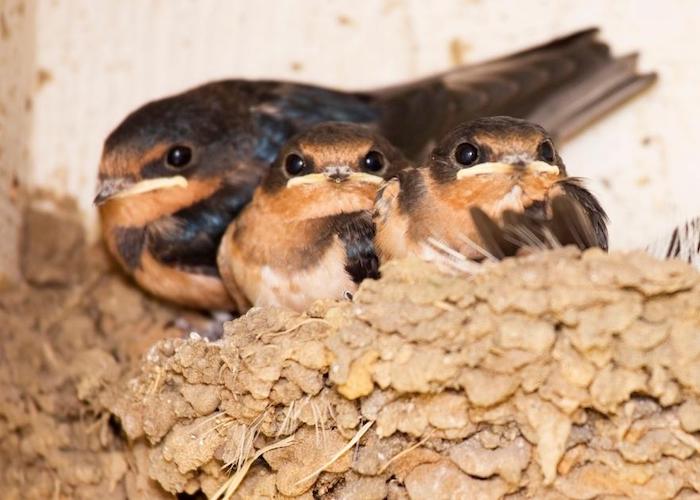
Image: Canva
If the baby bird does not have feathers
If the baby bird has no feathers or is covered in only a fluffy down, it is a nestling and has most likely fallen from the nest by accident. The only circumstances in which you should attempt to return the bird to its nest is if you know exactly which nest it has fallen from, and if it appears to be strong and healthy. In some cases, parent birds will sense that there is something wrong with one of their young and eject it from the nest so they can concentrate on raising the stronger ones. This sounds harsh, but it is nature taking its course.
If an apparently healthy nestling cannot be returned to its nest, it should be passed onto a local animal shelter for rehabilitation as soon as possible. Remember, if the young bird is fully feathered (a fledgling), it will have left the nest deliberately and therefore should not be put back in the nest.
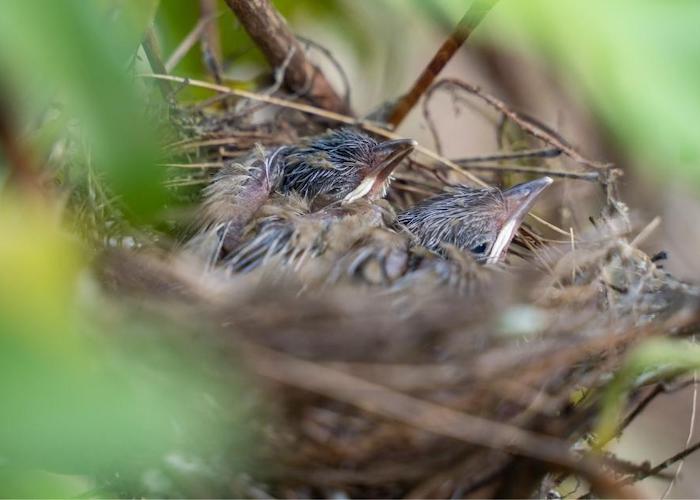
Image: Canva
Is it in danger?
If you find a fledgling is in a potentially dangerous location, such as in a road or busy path, then it makes sense to pick it up and move it a short distance out of harm’s way. However, make sure to leave it as close as possible to where you found it, and certainly within hearing distance from the original site. This is to ensure it can still be located by its parents.
What to do if you find an injured baby bird
The above advice applies to healthy fledglings and nestlings. However, if you find a baby bird that is obviously injured, for example it has a hanging wing or visible wounds, contact The RSPCA (England and Wales), SSPCA (Scotland) or USPCA (Northern Ireland) – not the RSPB – and they will advise. Alternatively, you can contact a local independent rescue centre – find your nearest centre on Help Wildlife.
Finally, remember…
Exciting as it is to have birds nesting in your garden, always remember to leave wild bird nests and eggs alone. Don’t be tempted to keep peeking, or touch any eggs or young! Any disturbance could cause the parent birds to abandon the nest and the eggs or chicks. Try not to spend too much time in the vicinity of the nest, as human presence may prevent parent birds from returning to the nest to incubate eggs or feed chicks.
Following this advice will give young birds a greater chance of survival and help ensure they grow to full strength, when hopefully, you can enjoy watching them feeding in your garden!
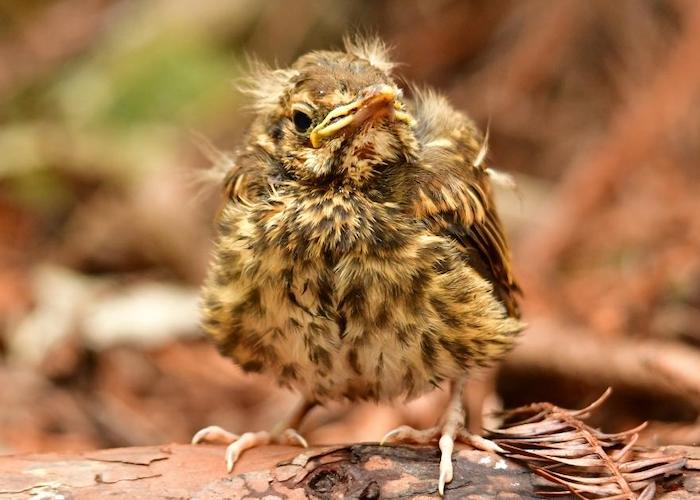
Image: Canva

